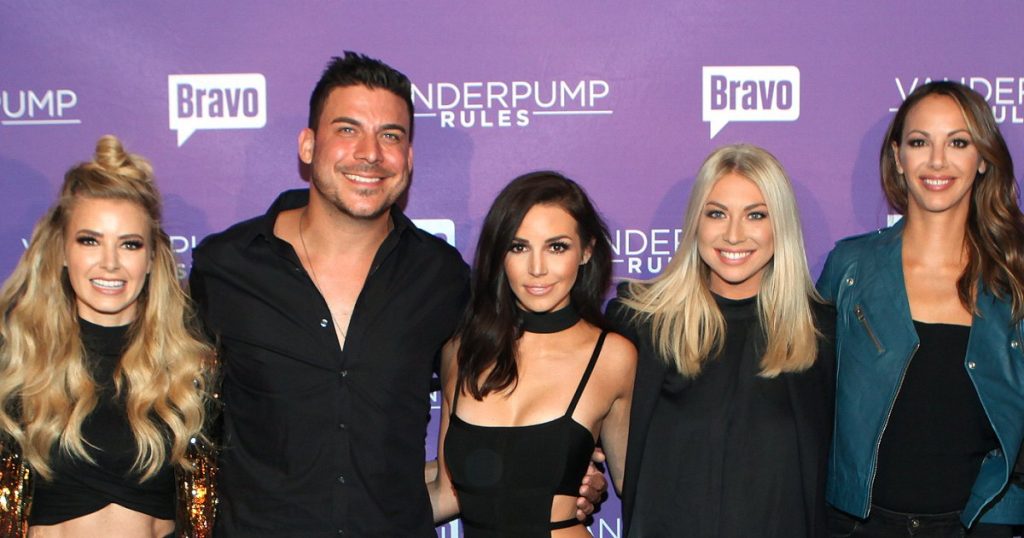The reality television landscape is often shrouded in secrecy when it comes to cast member salaries. However, the hit Bravo series, Vanderpump Rules, has seen its stars offer occasional glimpses into their earnings, sparking both fascination and controversy. The issue of compensation came to a head following the explosive "Scandoval" affair in 2023, involving Raquel Leviss, Tom Sandoval, and Ariana Madix. This dramatic fallout not only captivated audiences but also ignited discussions about the financial dynamics within the reality TV ecosystem, particularly concerning the perceived value and compensation of individual cast members.
Raquel Leviss, a central figure in the "Scandoval" drama, publicly claimed she sought equal pay with Tom Sandoval and Ariana Madix for season 11, alongside reimbursement for her mental health treatment expenses. She alleged that Bravo’s refusal to meet her demands played a significant role in her decision not to return to the show. This ignited a broader conversation about fair compensation, particularly in the context of the increased ratings and attention the show garnered due to the scandal. Leviss argued that her contribution to the season’s success warranted a higher salary, reflecting the value she brought to the show. Her claims, aired on Bethenny Frankel’s podcast, were met with both support and skepticism, revealing the complex interplay of personal narratives, public perception, and financial negotiations within the reality TV industry.
Bethenny Frankel, a seasoned reality TV personality herself, amplified the discussion by criticizing Bravo for not offering Leviss a larger paycheck. Frankel argued that given the substantial revenue generated by the "Scandoval" storyline, Leviss deserved a significantly higher compensation. She went so far as to claim that Leviss’s salary was less than what she paid her own interns, highlighting the perceived disparity between the financial gains of the network and the compensation provided to the individuals driving the drama and viewership. Frankel’s intervention, leveraging her own experience and platform, brought the issue of reality TV compensation into sharper focus. Her comments touched on the ethical considerations surrounding the exploitation of personal narratives for profit and sparked a wider debate about the treatment and compensation of reality TV stars.
However, Leviss’s Vanderpump Rules co-stars challenged both Leviss and Frankel’s narratives about her salary. Scheana Shay, in particular, refuted the claims by detailing Leviss’s negotiated per-episode rate and total earnings for the season. This public contradiction highlighted the often conflicting accounts and lack of transparency surrounding reality TV salaries. Shay’s revelation not only contested Leviss’s portrayal of her compensation but also raised questions about the motivations behind these differing accounts. This internal dispute underscored the competitive and often fraught dynamics within the cast, where personal grievances and public image are closely intertwined with financial considerations.
The "Scandoval" affair and its financial fallout have underscored the complex relationship between on-screen drama and off-screen compensation in reality television. While the specifics of individual salaries remain largely undisclosed, the public discussion sparked by the controversy has shed light on the power dynamics, negotiation tactics, and ethical considerations at play. The varying accounts from Leviss, Frankel, and Shay expose the inherent complexities of determining fair compensation in a reality TV context, where the value of individual contributions is often subjective and tied to the unpredictable nature of interpersonal drama.
The broader implications of this controversy extend beyond the confines of Vanderpump Rules. It raises fundamental questions about the responsibilities of networks towards their reality TV stars, particularly in situations where personal vulnerabilities and dramatic narratives are exploited for profit. The discussion also touches upon the challenges faced by reality TV personalities in navigating the blurred lines between their public and private lives, where personal struggles and interpersonal conflicts become commodities within the entertainment industry. The "Scandoval" fallout serves as a case study in the ethical and financial complexities of reality television, highlighting the precarious position of cast members who are simultaneously the drivers of the narrative and subject to the often-opaque financial machinations of the industry.

